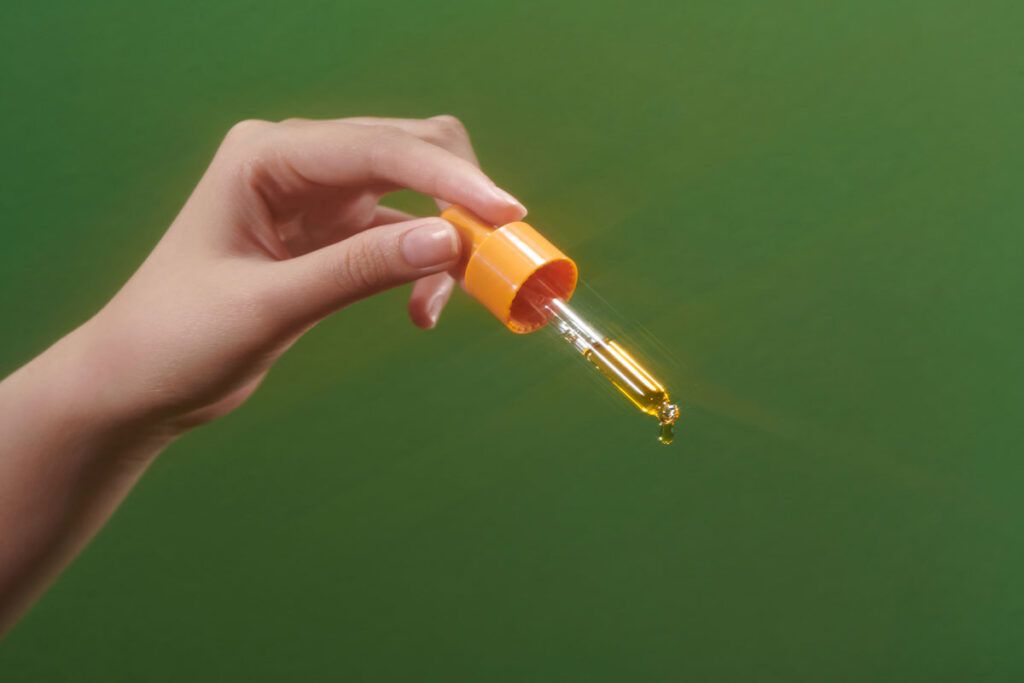Feelings of worry, fear, and distress characterize anxiety, which is a natural response to a real or perceived threat. If symptoms of anxiety become persistent and interfere with daily functioning, you may be living with an anxiety disorder.
Common anxiety disorders include the following:
Severe anxiety symptoms may require medical treatment. Natural methods like lifestyle modifications, relaxation techniques, and herbs may also help you, but caution is advised before you try any of these methods. Side effects, contamination, and medication interactions are possible when introducing herbs to your routine.
Do herbs help with anxiety symptoms?
Some herbs may temporarily relieve anxiety symptoms by regulating your stress response and brain activity.
Each herb may have a different effect on your body and how it works to alleviate stress. Often, these effects are of short duration.
Symptoms of anxiety disorders may differ from temporary anxiety by being persistent, prolonged, and severe. They often interfere with everyday activities and require professional management.
Even when herbs help relieve some anxiety symptoms, they can not replace the need for medical intervention.
Only a mental health professional can provide you with an accurate diagnosis and the most effective management plan.
7 popular herbs for anxiety

Discussing options with a healthcare professional before taking any herbs for anxiety is highly recommended. Some of these may interact with prescription medications or lead to adverse side effects, particularly if you live with a chronic condition.
The Food and Drug Administration (FDA) does not regulate herbs and supplements, which may lead to some concerns about safety and contamination. So, it would be best to research manufacturers, and their products and consult with a healthcare professional before taking these herbs.
Ashwagandha
Ashwagandha is highly regarded in Ayurvedic medicine and helps treat various ailments. Ashwagandha belongs to a group of herbs called adaptogens because they help the body adapt to stressful stimuli.
A 2022 review of 12 studies found that ashwagandha supplements may reduce signs of stress and anxiety, though the authors noted that more studies are needed.
The possible beneficial effects of ashwagandha for anxiety may have to do with the herb’s anti-inflammatory properties and its’ ability to act like the natural neurotransmitter gamma-aminobutyric acid. As a result, ashwagandha may help calm down nerve signals in the brain, creating a sedation-like response.
Ashwagandha may also help reduce cortisol levels. Cortisol is a “stress hormone” that may adversely affect your overall health when you have extremely high hormone levels.
A small 2019 study indicated that participants who took 600 milligrams (mg) of an ashwagandha supplement saw lower cortisol levels and improved sleep quality, and reported reduced stress levels.
You can take ashwagandha in capsule, tablet, powder, or liquid tincture forms.
You may need to avoid it if:
- you are pregnant
- you have hormone-sensitive prostate cancer
- you take certain medications
Chamomile
Chamomile is a popular herb known for its calming effects, although it is unclear how it works for relaxation. A 2016 study that included 170 participants and lasted 12 weeks suggested that chamomile tablets may relieve symptoms of GAD while not showing adverse effects when used long term.
A 2019 review also indicated that chamomile use for 2–4 weeks may be beneficial and safe for generalized anxiety symptoms and poor sleep quality.
You can enjoy chamomile as a tea or take it as a supplement. These products usually include dosage instructions.
Lavender
Lavender is widely known for its soothing fragrance and associated calming effects. Lavender in the form of essential oils is helpful in aromatherapy for anxiety relief.
A 2021 review of 37 studies suggested that lavender oils for inhalation and massage seem to have the most significant effects when it comes to anxiety relief. Prolonged use of these increased the potential relaxation benefits.
The review also indicated that Silexan, a lavender oil preparation available in capsules, may improve depression and anxiety symptoms.
No significant adverse effects have been reported for lavender use, though it’s best to dilute pure lavender oil before administering it on your skin to avoid irritation.
Cannabidiol (CBD)
CBD is a non-addictive compound derived from parts of the cannabis sativa plant that contain less than 0.3% tetrahydrocannabinol.
Tetrahydrocannabinol is associated with psychoactive effects that lead to euphoria or a “high.” CBD, on the other hand, does not cause any of these effects.
CBD stimulates your natural endocannabinoid system, restoring a chemical balance in your brain. Research suggests this system is important in mood regulation and stress response.
A 2020 review suggested that CBD may reduce not only anxiety symptoms but also those of depression, schizophrenia, and chronic stress. But, the authors of this paper note that more studies are needed to determine CBD’s exact mechanisms and long-term effects on anxiety and overall mental health.
CBD is available in many forms, including oils, capsules, and edibles.
CBD may interact with certain prescription medications. Consulting with a healthcare professional before consuming any CBD product is highly recommended.
Valerian
Some people use valerian root as a sleep and relaxation aid. But, research on its anti-anxiety effects is limited and conflicting.
A 2021 study in hemodialysis patients found that valerian was an effective aid in improving their sleep quality and anxiety symptoms.
An earlier 2020 review of 60 studies indicated a lack of conclusive evidence about valerian’s potential benefits for anxiety symptoms in the general population. But, the review suggests that the herb is safe to use in doses of 81.3–1,260 mg per day.
The National Center for Complementary and Integrative Health (NCCIH) also notes valerian may be safe but lead to side effects like headaches, stomach upset, and excitability. They also state insufficient evidence to confirm it improves anxiety symptoms.
Passionflower
For centuries, it was known that passionflower was helpful as a natural remedy for anxiety and sleep disturbances.
A 2018 review indicated that passionflower may be safe and effective for anxiety symptoms, though more research is needed.
You can enjoy passionflower as a tea or take it as a supplement following product dosage instructions.
Kava Kava
Traditionally Pacific Island cultures have been using Kava Kava for its calming and anxiety-reducing effects.
A 2018 review examining studies with cancer patients indicated that Kava Kava might reduce anxiety and depression symptoms. However, safety may be a concern for some people because of potential liver toxicity from long-term use.
Discussing Kava Kava supplements with your healthcare team before adding them to your routine is highly advisable.
How to treat anxiety disorders?
Usually, a combination of psychotherapy, medication, and lifestyle modifications help treat anxiety disorders.
Treatment options may include:
- cognitive behavioral therapy
- relaxation techniques like deep breathing exercises, meditation, or yoga
- regular physical activity
- optimal sleep hygiene of 7–9 hours per day
- a nutrient-dense diet
- medications like short-term benzodiazepines alprazolam (Xanax) and lorazepam (Ativan), and long-term antidepressants fluoxetine (Prozac), sertraline (Zoloft), and escitalopram (Lexapro).
Treatment may vary depending on the severity of your symptoms and other factors, like overall health and medical history.
If you need help covering the cost of medications, the free Optum Perks Discount Card could help you save up to 80% on prescription drugs. Follow the links on drug names for savings on that medication, or search for a specific drug here.

Free prescription coupons
Seriously … free. Explore prices that beat the competition 70% of the time.
Get free cardSummary
Research is inconclusive regarding the benefits of herbs for anxiety symptoms. Ashwagandha, CBD, and lavender oil may have potential short-term anti-anxiety effects, but they do not replace the need for medical treatment if you live with severe anxiety symptoms.
Consulting with a healthcare professional is highly advisable to avoid potential side effects and negative interactions with prescription medications.
Managing anxiety disorders often involves a holistic approach, including professional counseling, prescription medication, lifestyle modifications, and self-care practices.
Download the free Optum Perks Discount Card to save up to 80% on some prescription medications.
